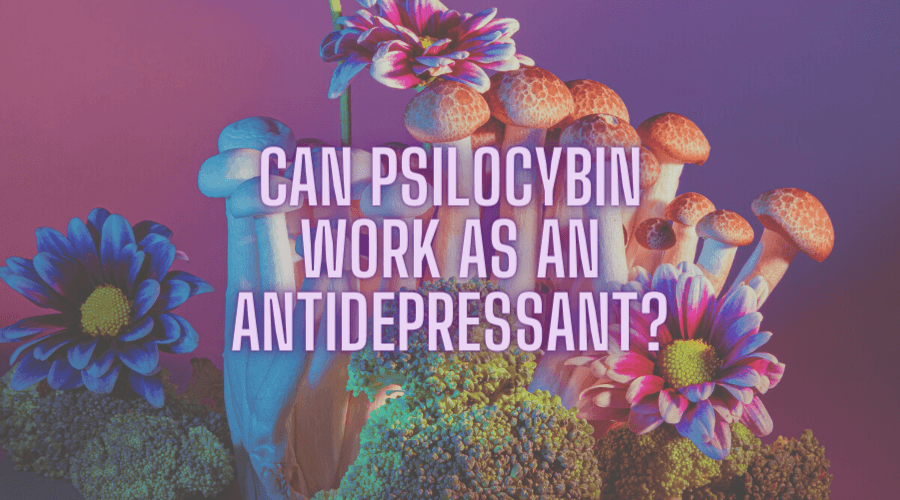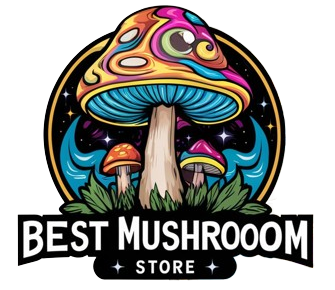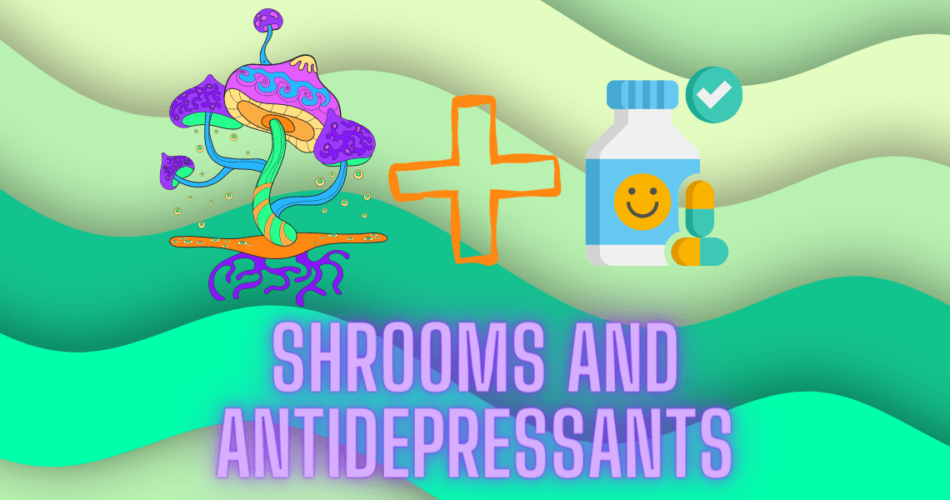Many people with depression and anxiety turn to mushrooms as a form of treatment. In this blog post we will discuss some key points about combining shrooms and antidepressants to consider, so you can make an informed decision about whether or not this is the best option for you.
TL;DR
- Shrooms and antidepressants affect the serotonin system in the brain, and mixing them can lead to unpredictable and potentially dangerous interactions.🍄
- Studies have suggested that chronic use of antidepressants can reduce the effectiveness of psychedelics like psilocybin.🍄
- Psilocybin has shown promising results as a potential alternative antidepressant, but further research is needed to fully understand its safety and effectiveness for this use.🍄
About Shrooms and Antidepressants
Shrooms work by interacting with the serotonin receptors in the brain, which are the same receptors targeted by antidepressants. The difference is that while antidepressants work by altering the levels of serotonin in the brain, shrooms mimic the effects of serotonin and bind directly to the receptors. This leads to an increase in serotonin activity in the brain, which can have a range of effects on mood, perception, and behavior (psychedelic experience).
Antidepressants, on the other hand, work by blocking the reuptake of serotonin, dopamine, or norepinephrine, which increases their levels in the brain. By doing so, they aim to improve mood, reduce anxiety, and alleviate symptoms of depression.

Psilocybin and Antidepressants: Can You Mix Them?
It is not recommended to mix shrooms and antidepressants, as they can interact with each other and produce unwanted side effects. Some antidepressants, such as SSRIs (Selective Serotonin Reuptake Inhibitors), can diminish the effects of psilocybin, while other antidepressants, such as MAOIs (Monoamine Oxidase Inhibitors), can enhance the psychedelic effects of shrooms and cause dangerous increases in blood pressure.
Furthermore, shrooms can also worsen the side effects of antidepressants, such as nausea, dizziness, and agitation. It is important to talk to your doctor before mixing shrooms and antidepressants, and to follow their recommendations closely.
In 2017, Carhart-Harris and Nutt conducted a groundbreaking study that unearthed the intricate connection between serotonin levels and psychedelic drugs like psilocybin. This research centered around the 5HT2A receptor which is specifically targeted by psychedelics. Ultimately they concluded that antidepressants could drastically influence how effective these substances are in therapeutic settings.
Editor’s Note
Psychedelic substances have become a promising area of exploration for mental health treatment, with evidence suggesting psilocybin may show potential as an effective therapy. However, navigating this relatively new and untested field requires caution – to ensure safety when exploring its benefits it’s best done under the guidance of professionals experienced in psychedelics research.
Can Psilocybin Work as an Antidepressant?
Recent clinical trials have revealed the remarkable potential of psilocybin, the active ingredient in shrooms, to treat depression (also major depressive disorder) and anxiety disorders. Drawing on evidence from multiple studies, scientists are beginning to understand how a small dose of psilocybin can bring about significant positive changes – even for patients who had not responded positively to traditional antidepressant treatments.
While more research is needed before it becomes accepted as part of standard medical practice, all indications point towards psilocybin possessing extraordinary therapeutic benefits that could revolutionize mental health care – though only under careful supervision by trained healthcare professionals due to its unpredictable psychoactive effects.

Psychedelic Shrooms and Antidepressants: Summary
By targeting serotonin receptors, both shrooms and antidepressants can positively influence the brain. However, their distinct mechanisms of action create an unforeseeable reaction should they be taken together – a risk not worth taking without consultation from a medical professional.
Though evidence suggests psilocybin could prove beneficial for treating depression, further study is required to develop safe methods of treatment in order to properly harness its potential power.
Frequently Asked Questions
Can You Mix Shrooms With Escitalopram?
While escitalopram and shrooms both influence serotonin levels in the brain, it is not advised to take them together without a healthcare professional’s supervision. Doing so can have adverse effects due to unpredictable combinations of ingredients that could lead to potentially life-threatening conditions such as serotonin syndrome.
Can I Use Shrooms as a Replacement for My Antidepressant Medication?
Despite psilocybin’s potential as an antidepressant, its use should not be taken lightly. Without the guidance of a healthcare professional, it may pose serious health risks and is not officially sanctioned for this purpose.
Are There Any Risks Associated With Using Shrooms for Depression?
Before deciding to use shrooms as a treatment for depression, it’s important to weigh the risks and rewards. Although they may offer relief from depressive symptoms without conventional medication, there are also chances of adverse psychological effects such as panic attacks, paranoia or psychosis — especially if used improperly.
Similar Posts:
- Prozac and Shrooms: Is This Antidepressant Safe to Take With Psilocybin?
- Antidepressants and LSD: Taking Psychedelics and SSRI Meds
- LSD and SSRI | Is It Safe to Take Psychedelics With SSRIs?
- Lexapro and LSD: Psychedelics and SSRIs Antidepressants
- Shrooms and Lexapro (Psilocybin Versus Escitalopram)
- Zoloft and Shrooms. Combining Antidepressants With Magic Mushrooms
- Magic Mushrooms Benefits – Studies on Microdosing Psilocybin Mushrooms




